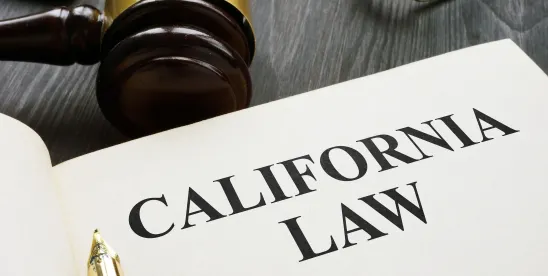In S.E.C. v. Jarkesy, 2024 WL 3187811 (June 27, 2024), the United States Supreme Court held that when the Securities and Exchange Commission seeks civil penalties against a defendant for securities fraud, the Seventh Amendment to the U.S. Constitution entitles the defendant to a jury trial. As discussed in this blog post, the Jarkesy decision raises for me the question whether California courts will arrive at a different result with respect to administrative penalties under the CSL.
More generally, I am concerned that the administrative hearing process under the California Administrative Procedure Act fails to afford procedural due process. Under the APA, when an administrative action is contested, the case may either be heard originally by the agency itself or in the agency's discretion by an administrative law judge. In the case of the Department of Financial Protection & Innovation, the Office of Administrative Hearings hears proceedings that involve desist and refrain orders, administrative actions and orders issued under many of the laws within the jurisdiction of the DFPI. Seemingly the due process requirement of a neutral decisionmaker is satisfied because the OAH and its hearing officers, known as Administrative Law Judges, are independent of the DFPI.
However, the ALJ's decision is not necessarily the last word. In fact, the ALJ's decision is initially only a "proposed decision". Government Code Section 11517(c) provides that the DFPI Commissioner may take any one of the following options with respect to the ALJ's proposed decision:
- Adopt the proposed decision in its entirety.
- Reduce or otherwise mitigate the proposed penalty and adopt the balance of the proposed decision.
- Make technical or other minor changes in the proposed decision and adopt it as the decision. Action by the agency under this alternative is limited to a clarifying change or a change of a similar nature that does not affect the factual or legal basis of the proposed decision.
- Reject the proposed decision and refer the case to the same administrative law judge if reasonably available, otherwise to another administrative law judge, to take additional evidence. If the case is referred to an administrative law judge pursuant to this alternative, he or she must prepare a revised proposed decision based upon the additional evidence and the transcript and other papers that are part of the record of the prior hearing. A copy of the revised proposed decision shall be furnished to each party and his or her attorney as prescribed in this subdivision.
- Reject the proposed decision, and decide the case upon the record, including the transcript, or upon an agreed statement of the parties, with or without taking additional evidence.
Importantly, the statute imposes absolutely no standards on the exercise of the DFPI's discretion in choosing amongst these alternatives. Nor does the statute bestow on a party a right to know the reasons for the DFPI's choice. Further, the California Court of Appeal has observed that "under section 11517, where the hearing officer acts alone, the agency may adopt his or her decision without reading or otherwise familiarizing itself with the record". Ventimiglia v. Bd. of Behav. Scis., 168 Cal. App. 4th 296, 309, 85 Cal. Rptr. 3d 423, 432 (2008) citing Hohreiter v. Garrison, 81 Cal.App.2d 384, 184 P.2d 323 (1947).



 />i
/>i

